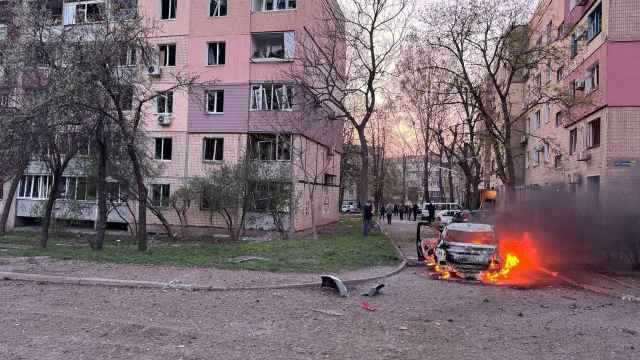After animal rights activists sounded the alarm over what was expected to be a nationwide campaign by "dog hunters" to poison stray dogs, reports have flooded in of dead dogs turning up in various cities.
A warning about the anticipated Jan. 20 campaign had made waves on social media sites, but many treated it as a rumor, since no source for the news was authoritatively determined and the reports were widely considered to be unsubstantiated.
On Wednesday, however, various regional news agencies reported a spate of dog poisonings. Yekaterinburg, Chelyabinsk, Nizhny Novgorod, Murmansk, Yaroslavl, St. Petersburg and Vladivostok are among the cities where poisoned dogs have been found, according to local media reports.
Regional news site TagilCity.ru reported that one dog had been seen dying in a courtyard in the Ural Mountain city of Nizhny Tagil.
"We saw her at 9 in the morning, but thought that she was playing and just stumbling around. Then an hour later we looked and she was having convulsions," a resident was cited as saying.
Animal rights activists in Yekaterinburg reported similar incidents on the "Anti-Dog Hunters" page of the popular social network VKontakte.
Vladivostok's local news site VladNews.ru cited residents of that city as saying they'd seen numerous dead dogs throughout the city on Wednesday, as well as some dogs still suffering the effects of the chemical that dog hunters use to poison the animals.
Despite efforts by animal rights activists to call attention to the dangers of vigilante dog hunters in recent years, an underground community seeking to kill off stray dogs in areas with little to no animal control continues to thrive.
A Message from The Moscow Times:
Dear readers,
We are facing unprecedented challenges. Russia's Prosecutor General's Office has designated The Moscow Times as an "undesirable" organization, criminalizing our work and putting our staff at risk of prosecution. This follows our earlier unjust labeling as a "foreign agent."
These actions are direct attempts to silence independent journalism in Russia. The authorities claim our work "discredits the decisions of the Russian leadership." We see things differently: we strive to provide accurate, unbiased reporting on Russia.
We, the journalists of The Moscow Times, refuse to be silenced. But to continue our work, we need your help.
Your support, no matter how small, makes a world of difference. If you can, please support us monthly starting from just $2. It's quick to set up, and every contribution makes a significant impact.
By supporting The Moscow Times, you're defending open, independent journalism in the face of repression. Thank you for standing with us.
Remind me later.






